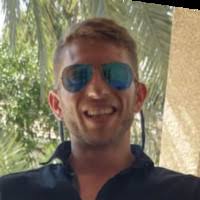by Dylan Kritter, URI Class of 2014
The spectrum of any religious or cultural identity has its two polar ends. Throughout our lives, we may find ourselves brought closer to, or maybe distanced from that identity. I find no coincidence that this Holocaust Remembrance Day compels me to write about my religious and ethnic background.
I went to Sunday school as a kid, became a Bar Mitzvah, and currently live in Israel. Despite all of that, I would never say I was truly a religious person. I really valued my family’s heritage, and the cultural emphasis on education, community, and ethics. Unfortunately, after one of the greatest human tragedies in history, part of Judaism and Jewish culture has become standing out against oppression. If it happened to our ancestors, (along with 9 million other Holocaust victims, targeted for their own backgrounds) it could happen to any other religion or ethnic group again. This endowed every one of us with two simple, but monumentally important tasks: stick together, and speak out against injustice or prejudice in any form.
Studying at URI, I found myself in the library, the gym, or the research lab a majority of my days. I’m not one to keep the Sabbath, but I will show up to temple on the high holidays. URI Hillel gave me an amazing, zero-pressure way for me to keep in touch with a Jewish community. Amy Olson is one of the kindest and most patient people I have ever met, and welcomed me with open arms as frequently as I wanted to maintain that connection. To me, it still isn’t about religion or belonging, but the importance of being connected to a Jewish community and the reminder of our presence, continuing now for over five thousand years. URI Hillel gave me that, and I am glad to keep in touch with Amy and see that the tradition lives on across the Atlantic.
However you celebrate your identity is perfect, however far or close you hold your roots. I think today serves as a day for us all to remember to rejoice and preserve our identities, lest some ideologues come along and attempt to erase them.
First they came for the socialists, and I did not speak out—
Because I was not a socialist.
Then they came for the trade unionists, and I did not speak out—
Because I was not a trade unionist.
Then they came for the Jews, and I did not speak out—
Because I was not a Jew.
Then they came for me--
and there was no one left to speak for me.
Martin Neimoller, German Clergyman, 1946.
I went to Sunday school as a kid, became a Bar Mitzvah, and currently live in Israel. Despite all of that, I would never say I was truly a religious person. I really valued my family’s heritage, and the cultural emphasis on education, community, and ethics. Unfortunately, after one of the greatest human tragedies in history, part of Judaism and Jewish culture has become standing out against oppression. If it happened to our ancestors, (along with 9 million other Holocaust victims, targeted for their own backgrounds) it could happen to any other religion or ethnic group again. This endowed every one of us with two simple, but monumentally important tasks: stick together, and speak out against injustice or prejudice in any form.
Studying at URI, I found myself in the library, the gym, or the research lab a majority of my days. I’m not one to keep the Sabbath, but I will show up to temple on the high holidays. URI Hillel gave me an amazing, zero-pressure way for me to keep in touch with a Jewish community. Amy Olson is one of the kindest and most patient people I have ever met, and welcomed me with open arms as frequently as I wanted to maintain that connection. To me, it still isn’t about religion or belonging, but the importance of being connected to a Jewish community and the reminder of our presence, continuing now for over five thousand years. URI Hillel gave me that, and I am glad to keep in touch with Amy and see that the tradition lives on across the Atlantic.
However you celebrate your identity is perfect, however far or close you hold your roots. I think today serves as a day for us all to remember to rejoice and preserve our identities, lest some ideologues come along and attempt to erase them.
First they came for the socialists, and I did not speak out—
Because I was not a socialist.
Then they came for the trade unionists, and I did not speak out—
Because I was not a trade unionist.
Then they came for the Jews, and I did not speak out—
Because I was not a Jew.
Then they came for me--
and there was no one left to speak for me.
Martin Neimoller, German Clergyman, 1946.

